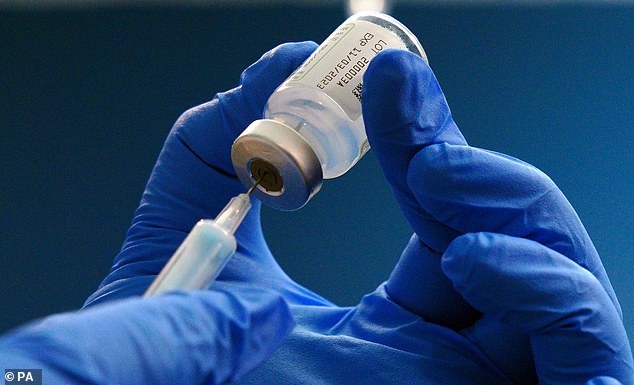Experts warn that thousands of children each year miss out on a crucial cancer vaccine.
The vaccine is offered to children ages 12 to 13 to protect them against human papillomavirus. The virus, known as HPV, can trigger cancers, including head, neck and cervical cancers.
While the highly effective vaccine has been offered to all Year 8 girls since 2008, and all boys since 2019, almost half of all eligible children do not receive it, leaving them vulnerable in the future, experts say. future.
The vaccination rate is also notably lower than that of the MMR vaccine. In England, around eight in ten children receive the combined measles, mumps and rubella (MMR) vaccine.
Experts say this disparity is due in part to the public perception that the HPV vaccine is intended to prevent sexually transmitted infections, making it not relevant for children.
Thousands of children miss out on crucial cancer vaccine every year, experts warn (File Image)

The vaccine is offered to children aged 12 to 13 to protect them against the human papillomavirus (file image)
Researchers also say that since the HPV vaccine is given to older children, parents are less interested in vaccinating them compared to when they were babies because they believe they are less likely to get seriously ill.
HPV is transmitted through skin-to-skin contact during sexual activity. About 80 percent of unvaccinated people will be infected with HPV at some point in their lives, but for most, it is harmless.
However, for some it can seriously damage the DNA of their cells, causing cancer to multiply in them.
According to the charity Oracle Head & Neck Cancer UK, HPV vaccination rates remain worryingly low. In 2022, only 52 percent of boys and 56 percent of girls were vaccinated.
Michelle Vickers, awareness director at Oracle Head & Neck Cancer UK, said: “High-risk HPV infections are now the fastest growing risk factor and leading cause of head and neck cancers.
“There are currently 3,300 new cases of head and neck cancer linked to HPV infections each year in the UK.”


